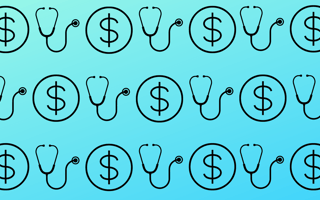
Access to affordable healthcare has long been a pain point for people in the U.S. Patients often incur exponentially high bills for receiving treatments that are as costly as they are vital, and they are unable to pay them off — even with insurance. This happens so frequently that outstanding medical expenses are one of the main reasons people file for bankruptcy.
Healthcare fintech solution PayZen was built so people can receive the medical care they need without fear of accumulating exorbitant amounts of debt. The company announced Tuesday that it has raised $220 million to help Americans pay their bills without becoming financially overburdened.
“The whole idea of PayZen is actually to address a major concern when it comes to affordability and equity in health care,” Itzik Cohen, CEO and founder of PayZen, told Built In. “As we see now, out-of-pocket patient responsibility has grown in the last few decades [and is] expected to continue. So the burden on everyday Americans with insurance is just not sustainable.”
PayZen’s platform lets providers offer flexible, interest-free payment options to their patients. Its software integrates with hospitals’ electronic health record systems and uses data and a proprietary underwriting model to create individualized payment plans.
“It doesn’t really matter what kind of financial situation you’re in, or how much money you make or [your] creditworthiness,” Cohen said. “We will find the payment options to suit your needs or your family’s needs.”
The company’s latest funding round is a combination of $20 million in equity capital led by 7wireVentures and a $200 million warehouse credit facility from Viola Credit. The latter will go toward PayZen’s continued market expansion. PayZen’s software is active in hundreds of hospitals across places like Texas, Louisiana and Mississippi. The company is currently preparing to add its first customer in California.
As PayZen expands its operations, the company will also invest in building out its team. The company is growing with a focus on finance roles and service positions. In light of the current economic environment, Cohen expressed that PayZen’s team growth will be aligned with the company’s actual business growth.
The company will also put a large portion of its equity capital toward product development amid increased demand for its solution, according to a release. Whereas much of its current operations are automated, PayZen wants to ensure it has enough quality controls in place to continue offering its current level of payment integrity, security and accuracy, Cohen said.
In addition to quality control, PayZen will add more automated solutions to its platform to assist its team with patient services. These features will address areas such as anticipating a patient’s financial needs and automating communication.
“We’re truly a mission-based company. This is truly a case of doing well by doing good,” Cohen said. “The last thing we want people to feel is that finances are in the way between them and their healthcare. We think that removing that obstacle using technology, an efficient product that we created, is the right thing to do.”




